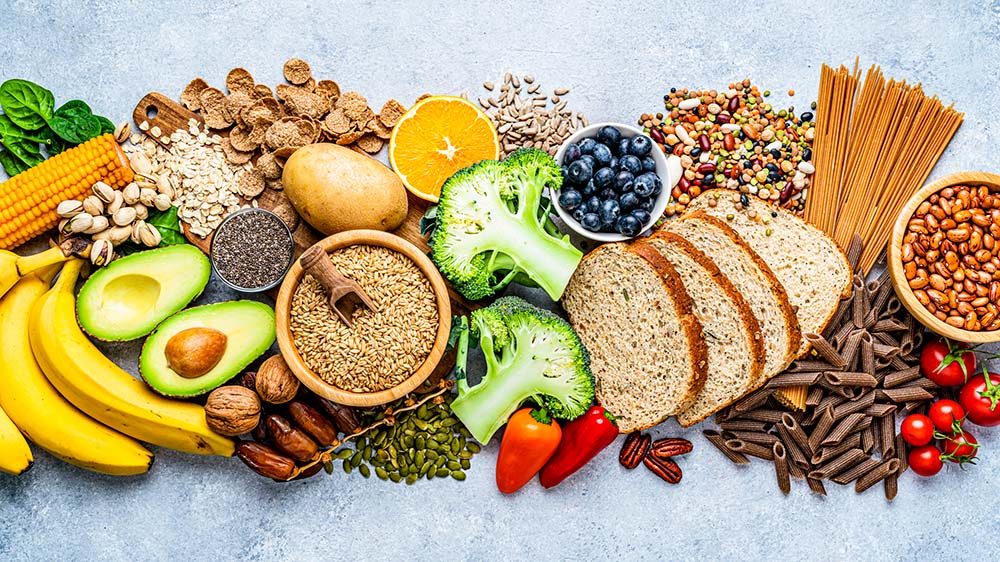In a world full of conflicting nutrition advice and diet fads, there’s one often under-appreciated component: dietary fiber. Despite its lack of glamour compared to other many trendy superfoods, fiber plays a critical role in our overall health and well-being. From aiding digestion to reducing the risk of chronic diseases, there are many amazing benefits of including enough fiber in our diets.
What is Dietary Fiber, and Why is It So Important?
Fiber, also sometimes referred to as roughage, is a type of carbohydrate found in plants such as fruits, vegetables, grains, nuts, and legumes. Unlike other types of carbs, most fiber is not broken down by the body into sugar molecules for energy. It is not fully digested, and it passes through our digestive system largely intact, providing a range of health benefits along the way.
Fiber Promotes Digestive Health
One of dietary fiber’s most important roles is to promote digestive health. Insoluble fiber adds bulk to stools, preventing constipation and facilitating regular bowel movements.
Soluble fiber, on the other hand, creates a gel-like substance in the digestive tract, which aids nutrient absorption, slows down the digestive process, and stabilizes blood sugar.
By keeping things moving smoothly through the digestive system, fiber also helps to prevent gastrointestinal issues such as diverticulosis and hemorrhoids.
Fiber’s Role in Weight Management
Fiber is also an invaluable tool for those of us looking to shed a few pounds or maintain a healthy weight. High-fiber foods tend to be more filling than their low-fiber counterparts, leading to a greater sense of satiety and reduced overall calorie intake.
Additionally, because fiber-rich foods often require more chewing and take longer to digest, they help to curb cravings and prevent mindless snacking between meals.
Fiber’s Role in Cardiovascular Health
Heart disease is of the leading causes of death worldwide. Fortunately, fiber can help improve heart health. LDL cholesterol is generally what we’re referring to when we talk about “bad” cholesterol, and contributes to heart attacks, strokes, and hypertension. Fiber can help by interfering with the absorption of LDL cholesterol in the intestines.
Fiber’s Role in Regulating Blood Sugar
In today’s world of high calorie, over-processed foods filled with added sugar, maintaining stable blood sugar levels is more important than ever.
Soluble fiber slows down the absorption of sugar in the bloodstream, preventing rapid spikes and crashes in blood glucose levels.
Fiber reduces the risk of developing type 2 diabetes while also helping people manage their existing diabetes.
Fiber’s Role in Cancer Prevention
The link between fiber intake and a reduced risk of certain types of cancer, including esophageal cancer, breast cancer, prostate cancer, and colorectal cancer, has been extensively studied.
In the case of colorectal cancer, high-fiber diets are thought to promote regular bowel movements, which in turn helps to eliminate potentially harmful substances from the colon more quickly.
How to Increase Your Fiber Intake
It’s obvious that fiber is incredibly important—but how do we get enough fiber in our diet? While supplementation can be useful in certain cases, the easy answer is to expand your diet to include a wide range of fiber sources from your food.
Some simple strategies for increasing fiber intake include:
Eat more fruits and veggies: Include a variety of fruits and vegetables in your meals and snacks each day. Plants contain a lot of natural fiber!
Choose whole grains: When choosing your foods, opt for whole grain versions of bread, pasta, rice, and cereal instead of refined grains. Whole grains contain significantly more fiber than processed and refined grains.
Elevate your snacking game with nuts and seeds: Nuts and seeds are both rich in fiber and also contain plenty of healthy fats and protein.
Incorporate legumes: Legumes like beans, lentils, and chickpeas are excellent sources of both soluble and insoluble fiber.
Read food labels: When shopping, check the nutrition label for fiber content and choose products with higher fiber content.
Prioritize Fiber in Your Diet for Better Health
Fiber is one of the dietary secrets to good health. From promoting digestive health to reducing the risk of chronic diseases, the benefits of fiber are far-reaching and undeniable. By incorporating more fiber-rich foods into our meals and snacks, we can take important steps towards improving our overall health, wellbeing, and increase longevity.





